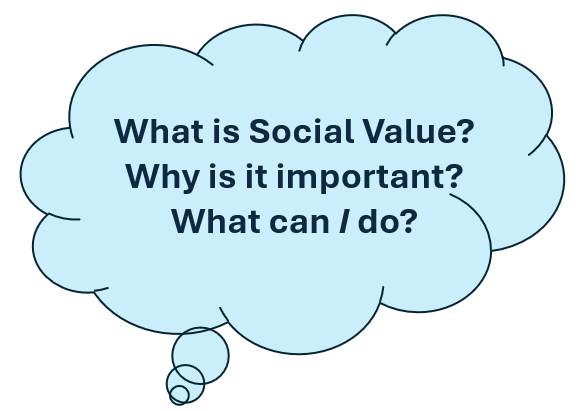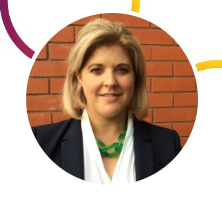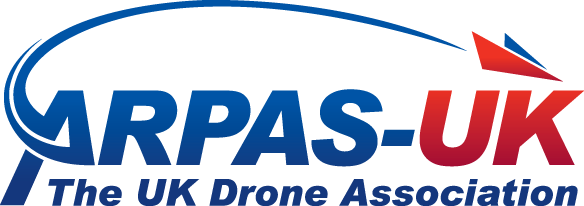by Sarah Stone, Founder & Director of Samtaler
In the ever-evolving landscape of drone operations, business owners often focus on the technical aspects of their trade — mastering flight manoeuvres, capturing stunning aerial footage, inspecting commercial assets or post processing data efficiently. However, amidst the hustle and bustle of daily operations, it’s easy to overlook a crucial aspect that can significantly impact long-term success: social value.
What is Social Value?
Social value refers to the positive impact a business has on society, or the benefits it creates, beyond its financial performance. It encompasses a variety of elements, including employee recruitment and wellbeing, environmental sustainability, community engagement, ethical business practices, and contribution to social causes.
Why is Social Value Important to Drone Operators?
The public sector is a key customer for the industry with UAVs used across the public sector in a wide range of capacities from providing aerial surveys and data collection services to inspections of infrastructure like bridges, power lines, and pipelines.

Public sector bodies are increasingly conscious of the implications of their purchasing decisions and want to buy from suppliers who operate ethically and sustainably. To identify whether a supplier does this they place social value requirements in their tenders.
Which means if you want to win work with public sector bodies such as Local Authorities you will almost certainly be asked to make social value commitments; and with social value worth from 10% of the total marks it can make the difference between winning and losing the contract.
Another reason that social value is important is that providing opportunities for SMEs to enter supply chains and supporting economic growth is a social value outcome which public sector organisations are trying to create themselves. Which means that if you are an SME, simply by buying from you, the public sector will be creating social value themselves.
It isn’t just public sector procurement requirements that make it important. It’s now recognised that operating with a focus solely on profits can lead to short-term gains at the expense of long-term sustainability. Thinking about the social value your business can create will help you differentiate your company and stand out in the market as well as offering a range of other business benefits; businesses that prioritise social value are more likely to adopt environmentally friendly practices, ethical standards, and fair labour policies, all of which ensure their viability in the long run.
5 things Drone Operators can do to create social value
So, what sorts of things can drone operators do to create social value? We’ve put together this list of five things to help you:
1 – Prioritise sustainability in your own operations
Drones offer significant environmental benefits, such as reducing carbon emissions and minimising the need for traditional transportation methods.
Consider what sustainable practices you could implement throughout your operations, from energy-efficient flight planning to responsible waste management. Think about the environmental impact of your equipment, materials, and operational processes, and explore opportunities for carbon reduction or renewable energy adoption. The British Business Bank have put together this great guide on Net Zero for small businesses.
By prioritising sustainability in their operations, drone operators can not only minimise their own ecological footprint but also position the industry as responsible stewards of the environment.
2 – Raise awareness amongst young people about career opportunities in the industry
Globally, the drone industry is growing exponentially. According to a 2023 US Federal Aviation Administration (FAA) report, the number of commercial drones in the United States is projected to grow from 42,000 units in 2017 to over 352,200 in 2023, whilst the commercial drone market is estimated to grow by $44.85 billion between 2022 to 2027. This growth is leading to significant demand for people to fill a wide range of specialist roles including Drone Aerial Surveyors, Cinematographers, Search & Rescue pilots and coordinators and Industrial Inspectors, Agricultural specialists and delivery coordinators. The sector demands a certified, specialised workforce but with the world of work changing so rapidly, many young people studying today are unaware of the opportunities the industry presents to them, or the career pathways available and qualifications required.
Contact your local school or youth group and offer to deliver a workshop to young people on opportunities in the industry. Better still offer to mentor a young person or provide work experience. Not only will you be helping inspire young people to enter careers in the industry you could also be identifying a source of potential recruits for your own business as it grows.
3 – Educate and Advocate
Drones have the potential to revolutionize various industries, from agriculture to emergency response, and using drones can be both more sustainable and efficient but there is a lack of knowledge and awareness about what the possibilities are.
Use your expertise as a drone operator to educate others about the benefits of drone technology and advocate for responsible use. Address misconceptions, promote safety measures, and advocate for ethical standards within the industry.
Host workshops and educational sessions with local schools and business groups or conduct outreach programs in your local community to raise awareness about drone technology and its benefits.
Engaging with local communities and stakeholders not only fosters collaboration but can also lead to mutually beneficial outcomes and help identify opportunities where drones can be used that might not otherwise have been spotted.
4 – Prioritise Ethical & Safety Considerations; Uphold Standards and respond to concerns:
Ethical dilemmas surrounding drone use, such as privacy concerns and data security, are increasingly relevant in today’s society. Ignoring these only stores up problems but by adopting transparent and ethical practices, drone operators can mitigate these concerns and build trust with customers and stakeholders.
Respecting privacy rights, adhering to regulatory frameworks, and safeguarding data integrity are essential steps in demonstrating a commitment to ethical conduct.
Embrace transparency in your business practices, including data handling procedures, privacy policies, and compliance with regulatory requirements and communicate openly with stakeholders. Foster open communication with customers, local communities, regulatory authorities, and other stakeholders. Listen to their concerns, solicit feedback, and actively involve them in decision-making processes.
Create and publish a policy which demonstrates how you hold yourself accountable for upholding ethical & safety standards and continuously strive for improvement and seek feedback, listen to concerns, and collaborate on initiatives that address societal needs and priorities.
5 – Give Back
Allocate your time and expertise to social causes that align with your business values. This could involve volunteering the use of your drone for community projects, supporting local charities, or participating in environmental conservation efforts. One drone operator we know offers his time for free to local charities to film their events and then shares their videos to social media for them. This is not only immensely invaluable to them; he gets a huge amount out of it personally as well.
Social value is not just a buzzword; it’s a fundamental aspect of sustainable business success. For small business drone operators, embracing social value can lead to a host of benefits, from enhanced reputation and resilience to attracting talent and ensuring long-term viability. By integrating social responsibility into their operations, drone businesses can not only thrive financially but also make a meaningful difference in the world.
Useful Resources:
- https://www.samtaler.co.uk/social-value-hub
- https://www.samtaler.co.uk/social-value-hub/what-is-social-value-model-asking-for
- https://bit.ly/lain-social-value-guide
- https://www.thrive-platform.com/social-value-ten-things-every-business-needs-to-know
- https://www.british-business-bank.co.uk/business-guidance/guidance-articles/sustainability/what-is-net-zero-an-introduction-for-small-businesses#additional-support

Sarah Stone, Founder & Director of Samtaler
Sarah began working in social and sustainable procurement in 2016 for Local Authorities in Scotland to implement the requirements of the (then brand new) Procurement Reform (Scotland) Act. In 2019 she created Scotland’s first community benefit wish list for Perth & Kinross Council. This concept was adopted by Local Authorities across Scotland and the UK.
This concept was adopted by Local Authorities across Scotland and the UK. She has extensive experience in social value design and delivery across multi-sectors and consults with many blue-chip corporations and procurers across the UK. Before that, she was a senior advisor to David Cameron (2006-12) and Ruth Davidson (2015-17). She also co-founded and ran a social enterprise working with community groups and grassroots campaigners before launching Samtaler in 2017.

